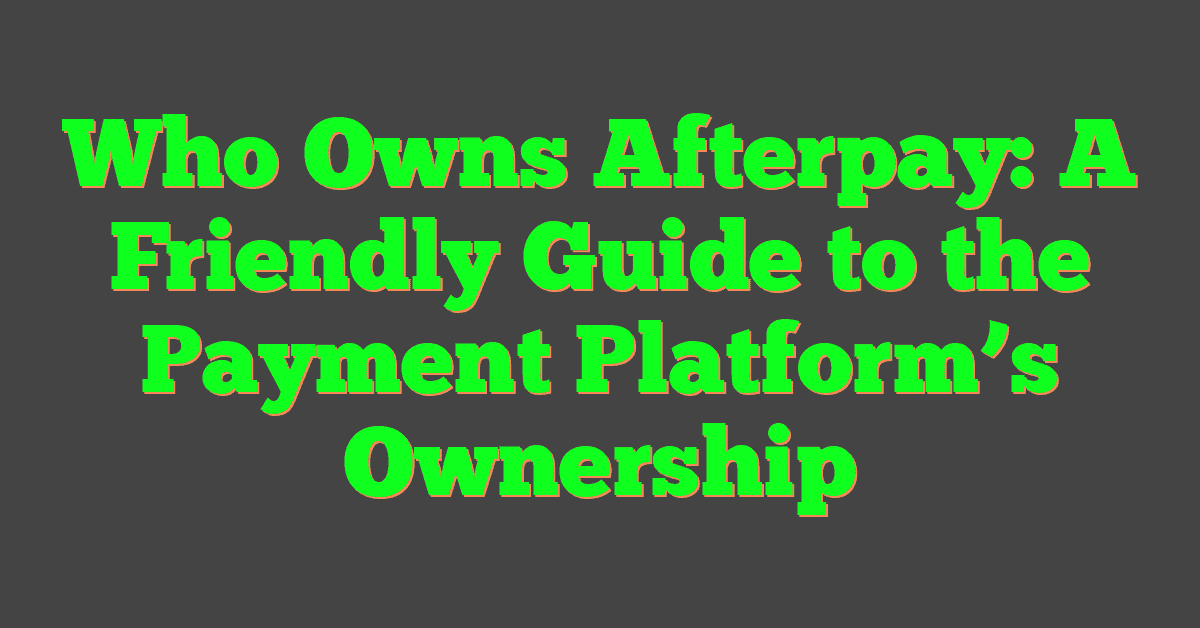Key Takeaways
- “Under Pressure” is jointly owned by Queen and David Bowie, reflecting their collaborative roles in writing and performing the song.
- EMI and Elektra Records hold the master recording rights, allowing them control over the song’s distribution and licensing.
- Royalties and licensing generate significant long-term income, as the song remains culturally and commercially relevant through streaming, ads, and media features.
- Clear agreements between Queen and Bowie avoided major legal disputes, showcasing the importance of mutual respect and proper profit-sharing arrangements in collaborative projects.
- The song’s iconic status ensures steady revenue, emphasizing the enduring value of intellectual property in the music industry.
- Lessons from “Under Pressure” highlight the power of teamwork and smart business strategies, crucial for sustaining creative ventures over time.
When you think of iconic songs that have stood the test of time, “Under Pressure” is probably near the top of the list. That unforgettable bassline, the powerful vocals, and the collaboration between two music legends—Queen and David Bowie—make it a track that’s hard to forget. But have you ever wondered who actually owns the rights to this masterpiece?
It’s a fascinating question because the song isn’t just a hit; it’s a cultural landmark. With two massive artists involved, things can get a little complicated when it comes to ownership and royalties. Let’s explore the story behind the rights to “Under Pressure” and how it all shakes out.
Background Of “Under Pressure”
As someone who loves digging into the stories behind iconic creations, “Under Pressure” stands out for its unique collaboration and the legacy it built. This song embodies a mix of creative genius and teamwork that’s inspirating on multiple levels, including business and partnerships.
The Collaboration Between Queen And David Bowie
Back in 1981, Queen and David Bowie worked together to create “Under Pressure.” Queen was already a legendary rock band, and Bowie was renowned for his innovative style. They met during a studio session in Switzerland, which started as an unplanned jam session. That spontaneity turned into one of the most recognizable songs in music history. Each artist contributed unique elements—Freddie Mercury with his commanding vocals, Bowie with his distinctive voice, and John Deacon with the unforgettable bassline. This joint effort required blending different creative styles, which shows how effective collaboration can break barriers and result in something legendary.
Release And Initial Reception
EMI and Elektra Records released “Under Pressure” in October 1981. The song quickly gained popularity, reaching the top of the UK Singles Chart. It also performed well internationally and became a symbol of artistic synergy. Critics praised its emotional depth and musical innovation, which was rare for collaborations at the time. For me, seeing how this unexpected partnership led to such massive success reminds me of the potential power of side hustles and networking. Even when you’re venturing into something unplanned, it can lead to massive rewards if you find the right people and opportunities.
Intellectual Property And Music Rights
Ownership of songs like “Under Pressure” fascinates me because understanding music rights feels like cracking the code to massive revenue streams. Just like side hustles, music rights are assets that can generate income long after the initial effort.
What Are Music Rights?
Music rights refer to the legal ownership and control over a song’s composition and recording. There are typically two main types: copyright for the composition and master rights for the sound recording itself. For “Under Pressure,” this means Queen and David Bowie hold these rights jointly, covering royalties from streaming, licensing, and performances.
Song ownership can lead to ongoing income—licensing alone can bring in cash for years if a song is featured in ads, movies, or TV shows. It’s similar to running a hands-off income stream once the foundational work is done.
Factors Influencing Song Ownership
Song ownership is influenced by contributions to the song’s creation, recording contracts, and rights agreements. In the case of “Under Pressure,” Queen and Bowie agreed to share credit for writing the song during their collaboration. Additionally, their record labels, EMI and Elektra, handle the master recording rights, earning a cut whenever the track is distributed or played commercially.
Other elements like publishing deals and performance rights organizations (PROs) also play roles in determining who gets paid. Consider this—just like in business, the more stakeholders involved, the more complex dividing profits becomes.
Ownership Of The Rights To “Under Pressure”
Understanding who owns the rights to “Under Pressure” is critical since song ownership can create significant ongoing revenue. This iconic track, a product of Queen and David Bowie’s collaboration, generates income through royalties, streaming platforms, and licensing deals—reminding me of how diversifying income streams works in business. Let’s break down who owns what when it comes to this legendary song.
Queen’s Portion Of Ownership
Queen holds joint ownership over the rights to “Under Pressure.” Each member contributed creatively, from Freddie Mercury’s vocals to John Deacon’s unforgettable bassline. The band collectively shares songwriting credits, which aligns with the idea of splitting equity in a business partnership based on contribution. Their stake in the song showcases the power of teamwork in generating money-making assets. Queen continues earning royalties and licensing revenue across their catalog, making “Under Pressure” a key part of their financial legacy.
David Bowie’s Contribution And Rights
David Bowie’s role in crafting “Under Pressure” secured him joint ownership of the song’s rights. His lyrical input and vocal performance added to the track’s success, making him a co-creator. By sharing songwriting credits with Queen, Bowie ensured a steady income stream—or multiple income streams, depending on the song’s use in different formats like radio, films, or public performances. As an entrepreneur, I admire how Bowie’s artistic contribution continues to generate passive income long after his passing, proving the long-term value of intellectual property.
Role Of Record Labels And Producers
The record labels EMI and Elektra Records manage the master recording rights to “Under Pressure.” In practical terms, this means they control how the original recording is distributed and licensed. Labels often take a substantial cut when a track is licensed, which could surprise entrepreneurs exploring intellectual property investments. It’s similar to paying platform fees in an eCommerce business. Producers, although vital during the song’s creation, typically do not hold rights unless stated in their agreements, which teaches an important lesson: always review contracts carefully to understand your stake in a venture.
Disputes Or Controversies Over The Song’s Rights
Ownership disputes over hit songs can threaten the income streams tied to them. For entrepreneurs like me, who value multiple revenue channels, these legal battles showcase how critical it is to have clear agreements and airtight contracts in place. “Under Pressure” was no exception, though it managed to avoid some of the significant controversies that could’ve arisen from such a major collaboration.
Legal Disputes (If Any)
No major legal disputes emerged over “Under Pressure,” which is surprising given the song’s fame and the involvement of two powerhouse artists, Queen and David Bowie. Both parties agreed early on to share songwriting credits equally, cutting through potential conflict. For someone who’s always on the lookout for team-based projects in my ventures, their dynamic emphasizes the importance of mutual respect and solid agreements in profit-sharing.
However, situations like these remind me how essential it is to understand intellectual property rights. If either artist had contested creative input or tried claiming a larger share, it could’ve led to costly legal battles and strained partnerships. Learning from this, I prioritize clarity and alignment in every business deal to avoid adding unnecessary risk to my income streams.
Licensing And Usage Over The Years
“Under Pressure” has seen licensing deals for countless commercials, TV shows, and films, making it a textbook example of passive income through intellectual property. Its popularity spiked again after Vanilla Ice sampled the iconic bassline in “Ice Ice Baby,” though the sampling sparked brief controversy. Vanilla Ice originally failed to clear the sample, resulting in a financial settlement and songwriting credit adjustments. This situation serves as a reminder of the importance of proper licensing—a principle I follow when venturing into creative side hustles like print-on-demand.
Queen and Bowie’s estates have reportedly leveraged the song’s licensing rights to secure consistent revenue. Watching how their teams managed these agreements inspires me to treat every licensing opportunity seriously. Whether selling digital products or exploring affiliate marketing, I continually look for ways to maximize returns while protecting the integrity of my work. Proper licensing ensures sustainable income, just like “Under Pressure” continues to generate decades after its release.
Modern Relevance Of The Song’s Ownership
As someone who’s always looking for ways to create income streams, I find the ownership of “Under Pressure” fascinating. It’s not just about owning a song, but how that ownership translates into steady revenue through smart licensing and timeless cultural impact.
Commercial Exploitation
The song’s ownership rights act as a valuable asset, much like a strong portfolio or a successful side hustle. Queen and Bowie, or in more recent times their estates, have effectively exploited “Under Pressure” for commercial gain. Licensing alone generates considerable income. For example, brands and films use the track in marketing campaigns and soundtracks, paying licensing fees to ensure proper permissions. This stream mirrors passive income setups, something I’m always striving for in my ventures.
“Under Pressure” has also delivered returns through streaming platforms, with millions of plays on services like Spotify. Every stream creates micro-revenue, which compounds over time. As an entrepreneur, I love seeing how residual income can flow from digital platforms with the right assets in place. It’s like seeing your side hustle go viral and earning on autopilot.
Cultural And Historical Significance
Beyond finances, “Under Pressure” holds immense cultural and historical weight. Its collaboration between Queen and Bowie wasn’t just for fame—it was about creating something impactful. That lasting cultural relevance keeps the song in demand, whether it’s sampled (think Vanilla Ice’s infamous “Ice Ice Baby”) or reimagined by newer artists.
As a fan of finding repeatable formulas for success, I see Queen and Bowie’s intentional efforts as a framework for building assets that last. Their collaboration was smart business. They leveraged their unique styles and combined audiences, something every entrepreneur or creator can take notes from. The song continues to resonate with listeners decades later, proving that well-executed ideas maintain timeless value.
Conclusion
“Under Pressure” stands as a testament to the power of collaboration and creative synergy. The partnership between Queen and David Bowie not only produced an unforgettable song but also set an example of how mutual respect and smart agreements can lead to lasting success.
Its legacy continues to inspire, proving that great music transcends time while offering valuable lessons on the importance of teamwork and understanding intellectual property. “Under Pressure” isn’t just a song—it’s a cultural icon that keeps delivering both emotionally and financially, even decades later.




